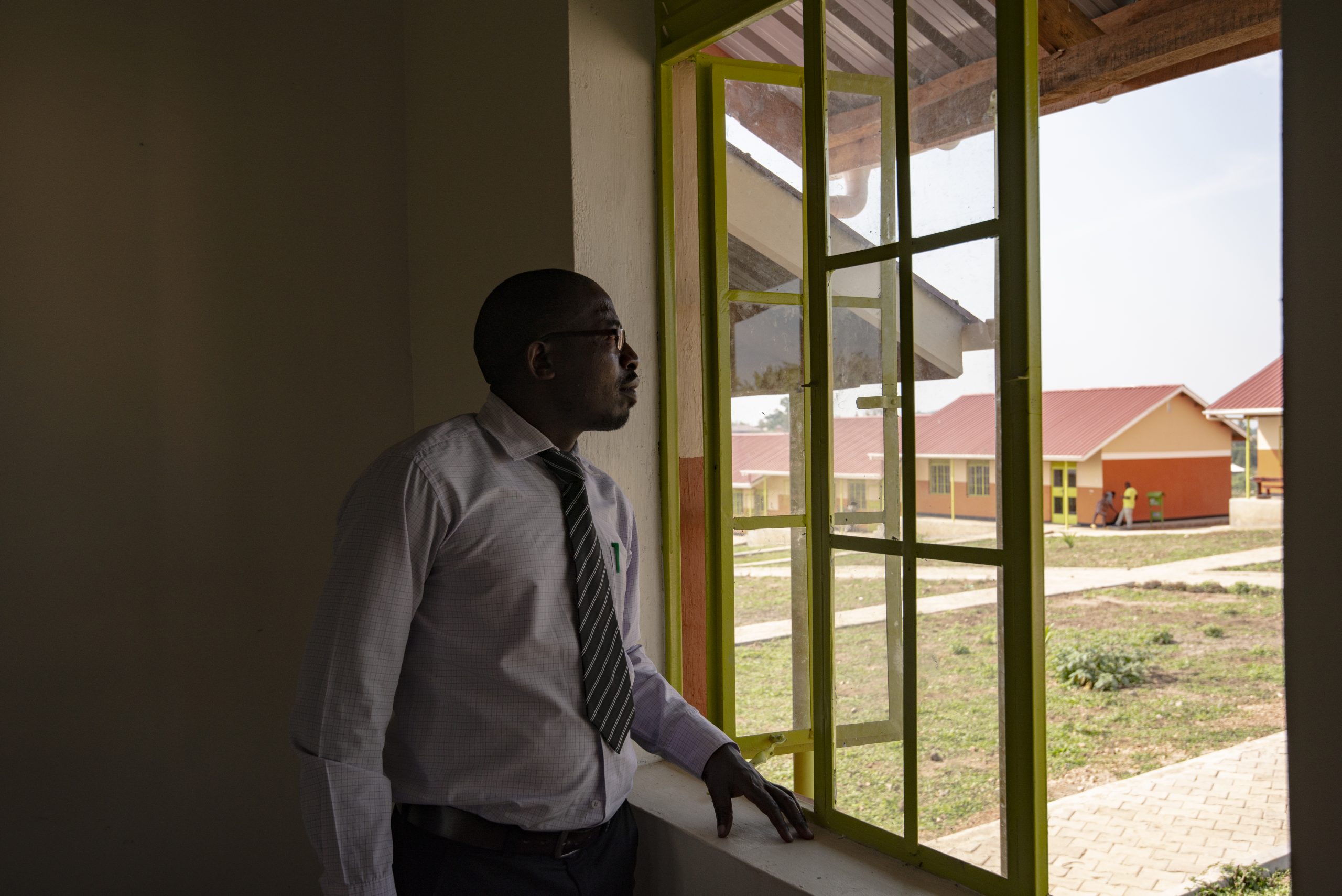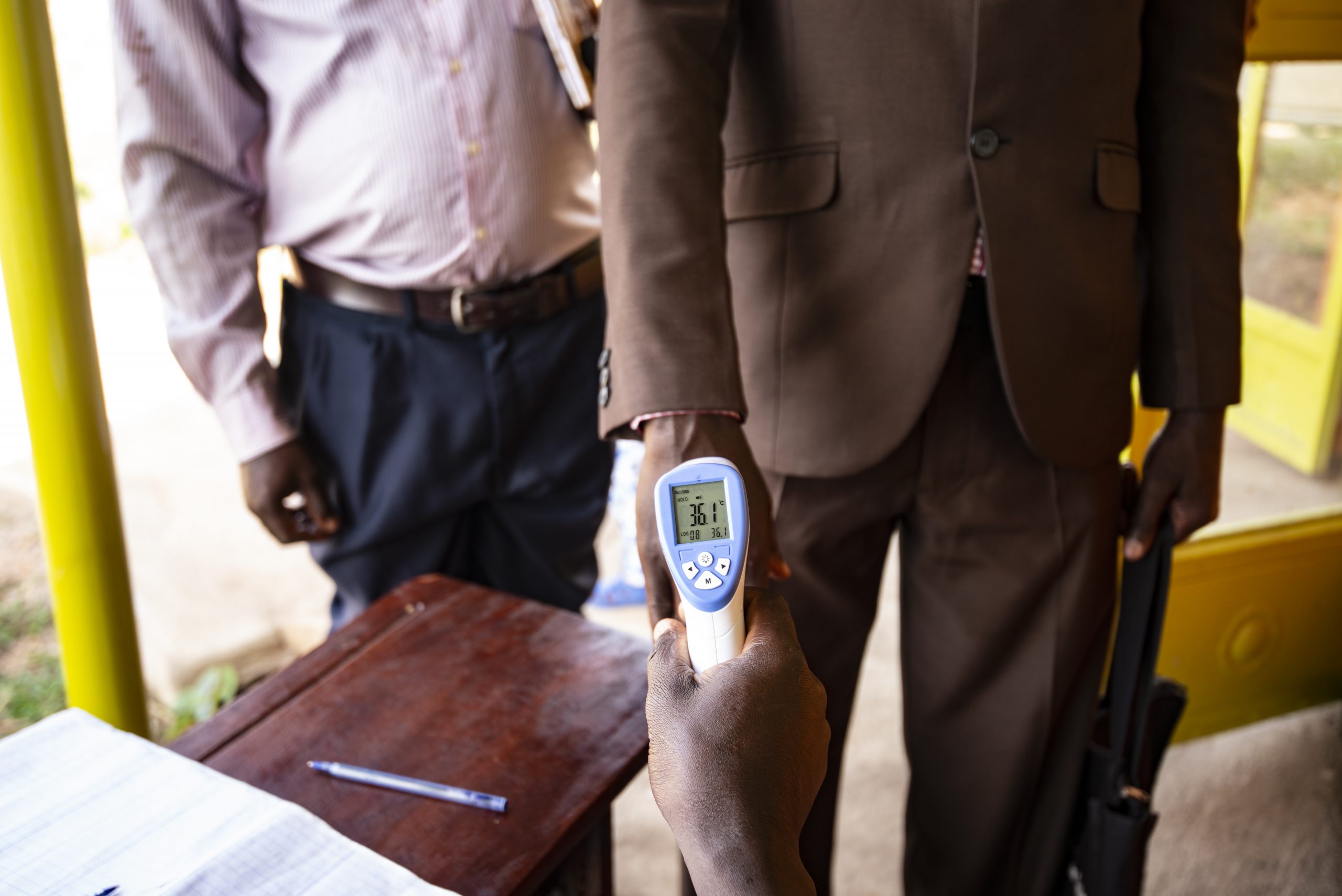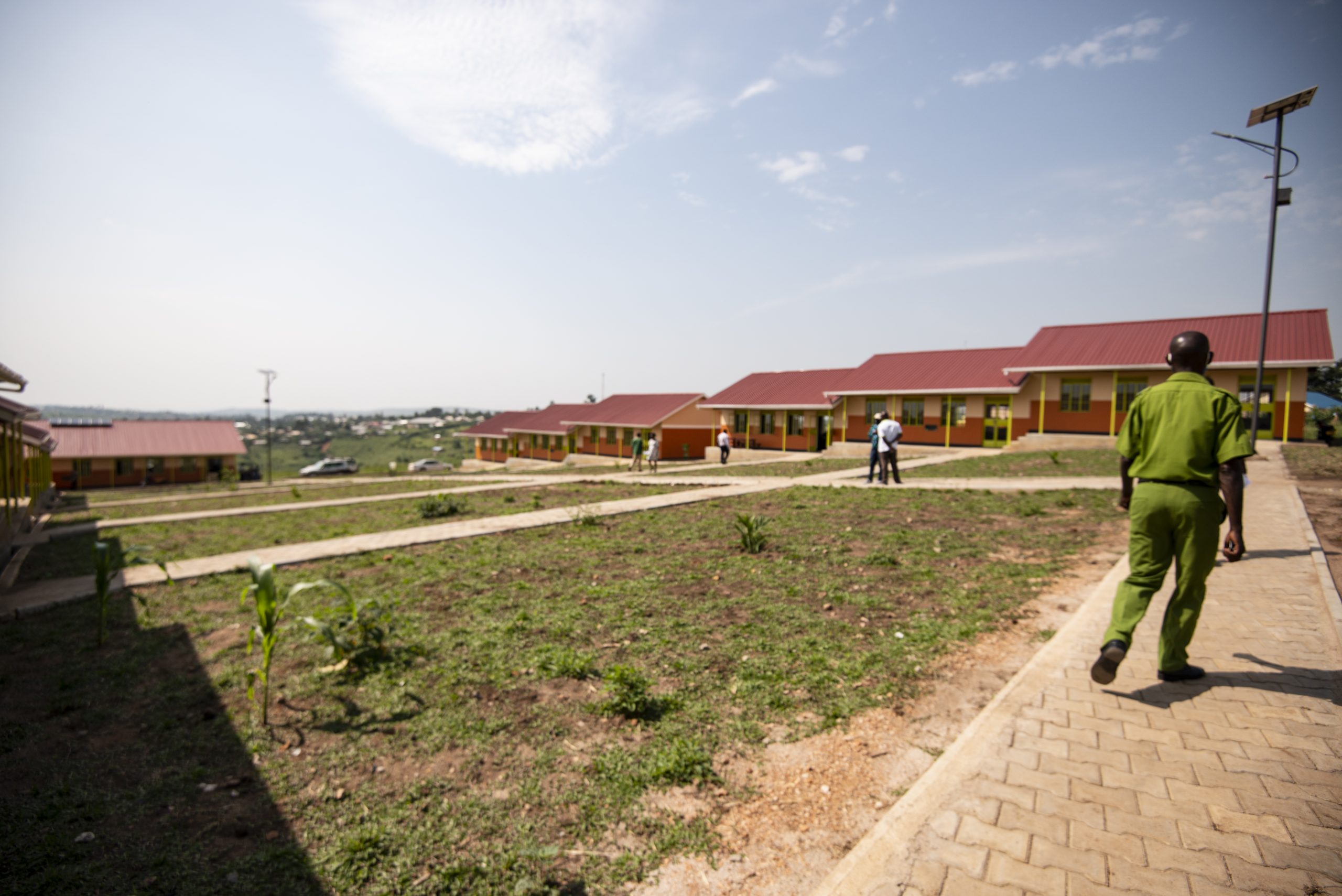After two years of closures, Ugandan schools reopened and refugees eagerly returned to classrooms
Schools were closed in spring 2020 as Uganda went into lockdown due to COVID-19. Over fifteen million children were out of school, including more than 600,000 primary and secondary aged refugee students.
ISAAC MUNYUZA’S favourite subject is biology, and he dreams of becoming a doctor. Unfortunately, for the last year, he has been working as an unskilled labourer while schools in Uganda were closed to stem the spread of COVID-19.
Schools were closed in June 2021 as the country went into lockdown following a second wave of COVID-19. Over fifteen million children were out of school, including more than 600,000 primary and secondary aged refugee students.
Munyuza, who is eighteen, fled Congo with his parents and siblings in 2014 following the war that left hundreds of people dead and others injured.
“Life was hard in Congo. We were always terrified that soldiers would come and kill us. Because of the uncertainty, we decided to cross the border into Uganda and seek refuge,” he says as he sits on the doorstep of his home in Kyaka II refugee settlement in Western Uganda.
“Now I will be able to walk to school”
Munyuza is one of the students that will be joining Bukere Secondary School on January 10th 2022 when schools reopen. The new school was constructed in Kyaka refugee settlement by Finn Church Aid (FCA) with funding from the Bureau of Population, Refugees and Migration.
“My new school has a laboratory so I will be able to do my practical lessons from there,” he adds.
“Bukere secondary school…its closer to home. Now I will be able to walk to school and arrive on time before classes start. I used to reach late at my former school because it was far, and I had to walk a long distance. Sometimes I would even miss school,” says Munyuza. Prior to the school closure, Munyuza was studying from Bujubuli secondary school which is about ten kilometres away from his home.
The new secondary school will help reduce the reduce the number of students in the classroom which is expected to be huge in January 2022. This is because each grade will have a double cohort of students that couldn’t move on to the next grade due to the pandemic.

“Construction of more classrooms to cater for the big number of students is underway, and we are equipping teachers with knowledge and skills to handle large classes once schools resume. We have given teachers, parents and learners psychosocial support to mentally prepare them for the reopening,” says Dennis Okullu Ogang, FCA´s Education Specialist.
“At Bukere Secondary school we have already enrolled over 250 students to attend senior one, two and three.” says Vallence Tukacungurwa the Head Teacher at Bukere Secondary school.
Schools with special support
During lockdown, FCA ensured that over 70,000 children at all levels could continue learning by providing home learning/self-study materials developed by the National Development Curriculum Centre (NCDC) to students. Children from vulnerable families were supplied with radio handsets and, teachers conducted live radio lessons. Home learning was further supported by small community learning groups and home visits.
Still, many students faced significant barrier to their education. Over 90,000 girls under 18 years have become pregnant while under lockdown according to a United Nations Population Fund 2020 report on teenage pregnancy and FCA is working hand in hand with the government to allow them to attend school.
“FCA is also rolling out the Ministry of Education ‘s policy on prevention and managing teenage pregnancy in schools in Uganda so that schools can accept girls who became pregnant during school closure by supporting them with counselling through the school system so that they can continue with learning” says Okullu Ogang.
One of these measures is a collaboration with the nearby health facilities so that they can assist in case of an emergency.

Another measure that aims to help these and other students complete their studies is the condensed curriculum for primary and lower secondary students. Funded by the European Civil Protection and Humanitarian Aid Operations (EU/ECHO), this will allow refugees and Ugandans who are now over school age to complete their studies.
Significant resources have also been spent so that children with disabilities will be welcomed into the classroom.
“We have established schools with specialized facilities for children with disabilities. We have set up a full-fledged Special Needs Education (SNE) School in Adjumani and an SNE specialised school in Kyaka refugee settlement to cater for children with severe disabilities. We have also recruited and deployed teachers who are specialised in SNE,” says Okullu Ogang.
Preparing for a safe return to the classroom
“Our teachers have been moving around the settlement sensitizing the community about the Standard Operating Procedures directed by the Government of Uganda to curb the spread of COVID-19. We have also mobilized to ensure that teachers get vaccinate,” says Tukacungurwa, adding that they have been informing people about the services available at the new school.
Preventing COVID-19 takes more than just talk and so FCA has provided equipment like infrared thermometers/temperature guns, handwashing stations, sanitizer, soap and facemasks to over one hundred schools and Early Childhood Development Centres within the refugee settlements.

“We have also trained school surveillance teams comprising of students, senior management members and teachers to be able to fully monitor adherence to COVID-19 prevention measures at the schools,” says Okullu Ogang.
FCA has done everything that they can to make sure that schools continue to be safe spaces for children to learn and staff are proud to open their doors again to classrooms. The staff at Bukere Secondary School have gone even further by making their school are pleasant environment to learn.
“Currently we are in the process of beautifying the school. We have planted trees, slashed the compounds and are cleaning all the facilities like the classrooms which have been unused for quite some time,” says Tukacungurwa.
Standing at the doorway of his new classroom, Munyuza appreciates their efforts. “I am excited to go back to school. I like my new school,” he says.
By: Linda Kabuzire
Photos: Melany Markham